
Delhi, June 20, 2024 – Haryana Minister of State for Irrigation and Water Resources, Dr. Abhe Singh Yadav has dismissed allegations from the Delhi Government, asserting that Haryana is providing Delhi with its full share of water. He attributed Delhi’s water shortage solely to internal mismanagement within Delhi itself. He said that Haryana does not politicize water issues, viewing water as a fundamental necessity. He underscored that ensuring water supply to the national capital is a collective responsibility, one which Haryana fulfills without shortfall. Haryana is currently supplying 1050 cusecs of water, exceeding the mandated 719 cusecs allocation.
Dr. Abhe Singh Yadav briefed journalists in Delhi with detailed figures regarding the water supply from Haryana to Delhi. Commissioner and Secretary of the Irrigation Department, Sh Pankaj Agarwal, EIC Sh. Virendra Singh, Superintendent Engineer YWS Delhi Sh. Tarun Agarwal, and XEN Delhi Sh. Manjeet Singh. During the press conference, Dr. Yadav stated that Haryana is consistently providing Delhi with its allocated water supply, substantiating his claim with specific figures. He criticized the Delhi government, accusing it of engaging in political drama over water issues instead of addressing internal mismanagement. Dr. Yadav highlighted that various independent agencies have verified Haryana’s water supply data, confirming its accuracy. He asserted that no agency has ever accused Haryana of supplying less water than mandated. Haryana fulfills its obligation by regularly supplying Delhi with the full authorized share of water.
He informed that in response to Delhi’s petition filed before the Supreme Court on June 13, 2024, the Haryana government submitted data on the water supplied to Delhi at Delhi Contact Point, Bawana. The data covers the period from May 23 to June 12, 2024, revealing that Haryana consistently released 1050 cusecs of water at Munak Head for Delhi. Additionally, more than 924 cusecs of water, as stipulated by the UYRB, was supplied at Delhi Contact Point, Bawana.
Dr. Abhe Singh Yadav stated that despite admitting to receiving their full water supply in official meetings, the Delhi government presents misleading and exaggerated figures in the media and political platforms. He pointed out that Delhi has been demanding 613 MGD (1141 cusecs), which exceeds the figures specified by the Upper Yamuna River Board (UYRB) in its report (1011 cusecs at Munak and 924 cusecs at Bawana). Even the DO letter of Jal Minister, Delhi has admitted that Delhi is getting 513 MGD or 954 cusecs of water on 18th June 2024 which confirms the fact that Haryana has always given full water to Delhi and any water shortage in Delhi is only due to internal mismanagement of Delhi itself.
Delhi government’s allegations are wrong
The Minister expressed firmly that the Delhi government has persistently levied unfounded accusations of receiving inadequate water from Haryana over the past several years, and each time, Haryana has substantiated that these claims are without merit. He disclosed that in 2021, Delhi filed a writ petition in the Supreme Court of India alleging insufficient water supply from Haryana. The Supreme Court directed an investigation by the Ministry of Jal Shakti, Government of India, whose subsequent report confirmed that Haryana consistently supplies Delhi with its complete allocated share of water. Following this, the Supreme Court admonished the Delhi government for repeatedly seeking relief on the same grounds, which had been dismissed in previous instances. Additionally, the Delhi government approached the Upper Yamuna River Board (UYRB) in 2018, and after a thorough inquiry, the UYRB also affirmed that Haryana was fulfilling its obligation by providing Delhi with its full share of water.
Dr. Abhe Singh Yadav provided further details, explaining that this year, the Delhi government once again accused Haryana of not releasing sufficient water to Delhi. He mentioned that the Jal Minister of Delhi, GNCT sent a DO letter to the Chief Minister of Haryana on 22nd May 2024, asserting that Haryana’s water releases were inadequate to maintain the required pond level at Wazirabad. Before Haryana could formally respond to this communication, Delhi filed a writ petition before the Supreme Court on 31st May 2024, seeking directions for Haryana to immediately and continuously release water at Wazirabad Barrage. Dr. Yadav informed that during the court proceedings on 3rd June 2024, the Supreme Court instructed the Upper Yamuna River Board (UYRB) to convene an emergency meeting on 5th June 2024. At this meeting, known as the 62nd emergency meeting of the UYRB, all participating states agreed that the average flow at Delhi contact point, Bawana, during May 2024 was approximately 948 cusecs. This flow rate exceeded the previous decision of 924 cusecs set by the Board in its 52nd meeting.
Dr. Abhe Singh Yadav explained that according to the Upper Yamuna River Board (UYRB) decision in its 52nd meeting, Haryana was mandated to release 1011 cusecs of water at Munak for Delhi to receive 924 cusecs at Delhi Contact Point, Bawana. However, Haryana has consistently been releasing 1050 cusecs of water at Munak for Delhi. During the hearing of the petition, UYRB conducted a measurement at Delhi Contact Point, Bawana on 9th June 2024, confirming that Delhi was receiving 961 cusecs of water at that time. Despite this, on the same day, the Jal Minister of Delhi, GNCT sent another DO letter to the Chief Minister of Haryana, alleging inadequate water supply. During the proceedings, the Advocate General of Himachal Pradesh acknowledged that their previous statement about the availability of surplus water (137 cusecs) was incorrect, and they sought permission to withdraw that statement. As a result, on June 13, 2024, the Supreme Court disposed of the writ petition and left the matter for the UYRB to consider further.
Dr. Abhay Singh Yadav highlighted that on June 18, a joint team from the Central Water Commission (CWC) and the Upper Yamuna River Board (UYRB) measured the water flow received by Delhi at the Bawana contact point. Their report indicated that Delhi was receiving 978 cusecs of water at that time. These findings clearly demonstrate that Delhi is consistently receiving more water from Haryana than the stipulated requirement of 924 cusecs.
Delhi government should also answer the questions
Haryana’s Irrigation Minister, Dr. Abhe Singh Yadav, posed pointed questions to the Delhi government. Firstly, he asked whether the Delhi government acknowledges that Haryana consistently provides Delhi with its full allocated share of water. Secondly, he questioned why Delhi, despite the Supreme Court’s decision on June 6 directing the release of 137 cusecs of additional water to Himachal Pradesh, is not seeking water from Himachal Pradesh and instead insisting on water from Haryana.
AAP government in Punjab should also resolve SYL issue
He stated that Haryana is not receiving its rightful share of water from Punjab due to the non-implementation of the Sutlej-Yamuna Link (SYL) canal. Additionally, he said that the Punjab government has halted progress on the Hansi-Butana canal project through a legal stay order. Dr. Yadav suggested that if the Aam Aadmi Party (AAP) governs both Delhi and Punjab, they should prioritize resolving these water-related disputes to ensure Haryana receives its full water allocation. Dr. Yadav acknowledged that Haryana currently obtains water from Punjab and Himachal Pradesh, but highlighted that the state faces a shortfall of 10 to 15 percent in water supply through the Yamuna river and Western Yamuna Canal (WJC) system. He underscored that Haryana’s internal water sources are limited, and the state itself contends with water scarcity issues. Despite these challenges, Dr. Yadav mentioned that Haryana has implemented various schemes on the ground to maximize the efficient use of available water resources and address the state’s water shortages effectively.
Political drama and hunger strike are not the solution to the problem
The Minister criticized the Delhi government for presenting misleading figures and engaging in political theatrics regarding water distribution. He stated that despite acknowledging in official meetings that Delhi receives its full share of water from Haryana, the Delhi government misrepresents facts on political platforms and in the media. He said that instead of focusing on political drama, the Delhi government should concentrate on improving its internal systems for water distribution. Regarding the issue of water distribution, Dr. Yadav underscored that it has become routine for the Delhi government to dramatize water-related issues, while Haryana consistently handles water matters fairly and transparently. In response to another query, he clarified that there is no unauthorized water lifting in Haryana that affects Delhi’s allocated share of water.
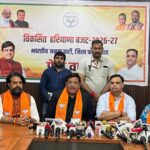
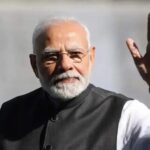

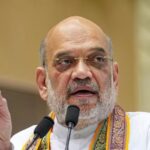


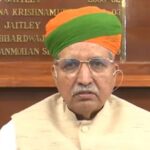

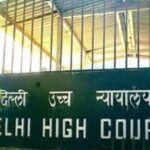
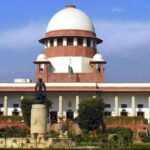

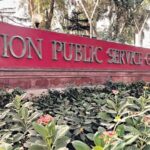
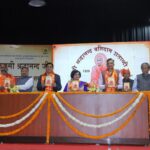

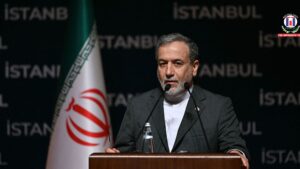



No Comments: